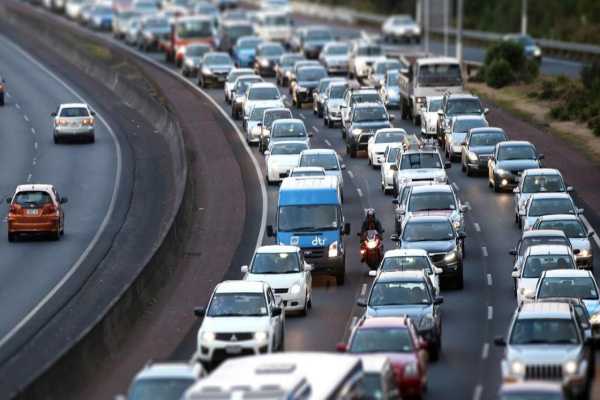Published on the 02/06/2017 | Written by Donovan Jackson

Public gets a say in determining how well cities use information and communication tech…
With its Smart City Asia Pacific Awards 2017 currently underway, market watcher IDC is talking up the prospects of New Zealand’s entries. That’s because out of the total 14 categories, local projects are named as finalists in six categories: Transportation, Public Works, Smart Grid, Smart Water, Connected Health and, Tourism, Arts, Libraries, Culture, Open Spaces.
Shortlisted from over 150 submissions, IDC NZ said in a statement that ‘these projects are leading the way in their respective categories and with six local finalists the calibre of Smart Cities initiatives in NZ is evident’.
Of interest to readers is that the finalists are open to public voting.
Yes, OK, we’re just going to come right out and say it, cities can’t actually be ‘smart’ as in intelligent in much the same way that those ridiculous Smart cars once flogged by Mercedes were not particularly intelligent. What the hopefully smart people, as in tidy, who run them – cities that is, not the cars – can do, though, is to use clever technology to make things work a bit better, although anyone who has ever experienced Auckland traffic after a minor prang will attest to the absence of ‘smartness’ where it might really count.
Indeed, good old Wikipedia has this to say about ‘smart cities’: ‘An urban development vision to integrate information and communication technology and Internet of things technology in a secure fashion to manage a city’s assets… smart city is promoted to use urban informatics and technology to improve the efficiency of services.’
But city administrations everywhere do love to append the word ‘smart’ to almost anything, deliberately or otherwise avoiding the simple reality that it is commercial interest and competition which typically drives ‘efficiency and effectiveness’ which are both traditionally absent from the activities of government.
In any event, Jefferson King, IDC NZ analyst, noted: “These successful cases show that smart city solutions are no longer just in the concept phase in New Zealand. Real innovation is taking place, with clear benefits for the economy.”
He did not elaborate on what those clear benefits are beyond saying ‘ranging from more efficient use of public resources to attracting foreign direct investment and skilled employees to New Zealand; we surmise that traffic jams are not in that range.
The finalists and categories are as follows:
- Auckland Transport (AT) in the Transportation category. AT analyses a livestream of information flowing from its 3,000 buses, including ticket sales, routes, schedules, and more for the up to 2 million residents and tourists that use the system every year. This allows AT to plan bus routes, and experiment with new ideas like dynamic pricing as well as provide the AT Metro app with live bus times for riders.
- NEC in the Public Works category. In collaboration with the Wellington City Council, NEC developed the KITE flexible sensing platform for Wellington. The platform gathers information on air quality, water quality, pedestrian mobility, waste management, parking, street lighting, solvent detection, and graffiti detection. This information provides actionable insights that facilitate improved economic and environmental benefits for the city.
- Unison Networks in the Smart Grid category. Unison Networks has a long term Smart Grid strategy which includes using a range of sensors to improve decision making and efficiency throughout the Unison Network.
- Qrious in the Tourism, Arts, Libraries, Culture, Open Spaces category. Qrious developed the Voyager portal which uses big data and analytics solutions to analyse anonymous mobile location data. The portal provides tourism and events operators with insights into tourist activity.
- Waikato District Health Board in the Connected Health Category. The DHB’s SmartHealth solution utilises a smartphone app that patients can use to have consultations and schedule appointments with their GP.
- Waitaki District Council in the Smart Water category. The council have upgraded the existing Oamaru Water Treatment Plant with better water filtration technology and analytics based solutions to track water treatment efforts in real-time.
The NZ finalists comprise six out of a total 46 smart city projects across Asia Pacific (excluding Japan) and were shortlisted from over 150 submissions from vendors, local governments and analysts. NZ’s total is bested only by China (nine finalists) showcasing the quality of the local projects and the ability to compete on a regional stage.
“Information is now a key driver of innovation and the finalists showcase New Zealand’s growing strength in this area,” said King. “If you look at the breadth of industries that these projects are influencing, it illustrates how data and analytics are being used to drive the New Zealand economy.”
Just which cities and projects are the smartest in the finale is likely to depend on at least two factors: Population and motivation. That’s because you, the public, are entrusted to apply your intimate knowledge of smart urban technology usage (don’t be a patriot, now) to influence the outcome. We’re not good at maths, but suspect that given the motivation, China might have the edge here.
Cast your vote here.



























